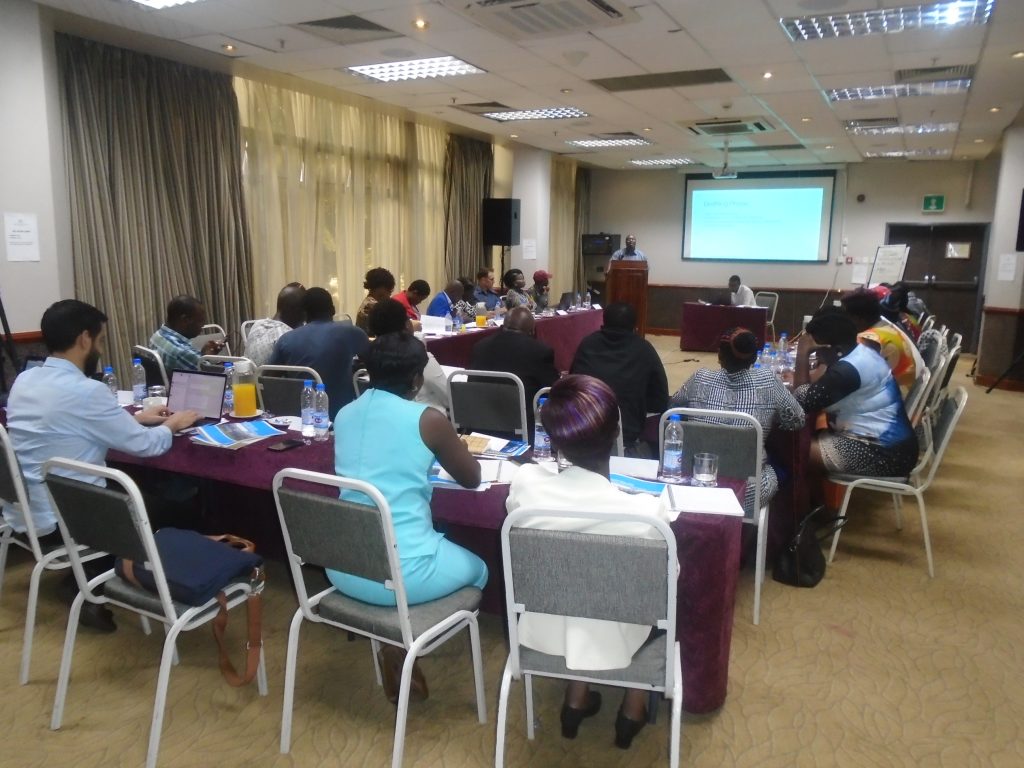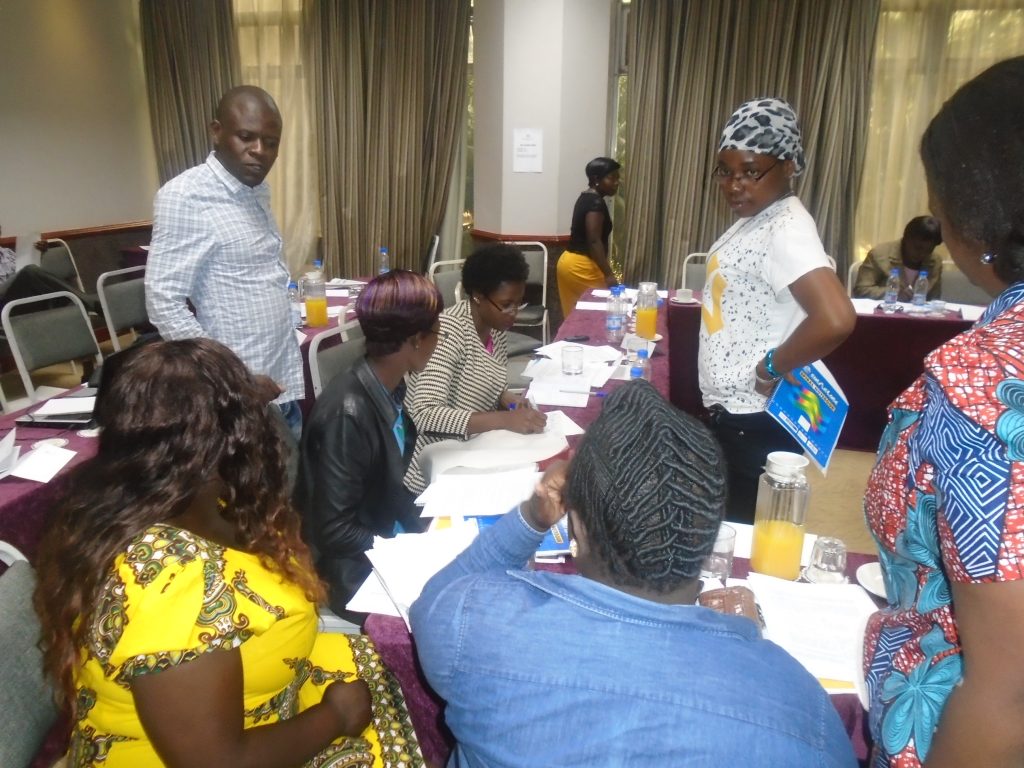Natural Justice and the Centre for Natural Resource Governance (CNRG) organised and jointly hosted a Legal Empowerment Launch and Training Workshop in Harare, Zimbabwe from the 6-7 December 2018. The workshop was organised as part of Natural Justice’s initiative to inform and train different players in Zimbabwe’s extractives sector, particularly community leaders, rights defenders, civil society organisations and community based organisations, on the development of legal empowerment methodologies, such as community protocols and community-led environmental audits, to engage the extractive sector stakeholders and to remedy the daily impacts of extractive projects felt by mining communities.
At the workshop, we also launched the Marange and Arda Transau Community Protocol and Penhalonga Environmental Audit, facilitated by Natural Justice, and the Penhalonga Community Protocol, facilitated by CNRG.
The workshop was attended by 20 community members from 10 mining-affected communities from different parts of Zimbabwe; namely, Marange, Arda Transau, Penhalonga, Hwange, Mazvihwa, Zvishavane town, Mberengwa Mpalawani, Mbire, Chivi, Shamva and Matepatepa. In addition to the community members, members of Zimbabwe’s civil society working in the extractives and natural resource governance sector were also present.
Through a highly participatory training methodology that involved storytelling, group work and exercises, sharing of experiences, as well as song and dance, different facilitators took the group through environmental justice and legal empowerment, development of protocols and audits, Zimbabwe’s laws influencing the use of the community protocols and audits, as well as the different laws that influence environmental governance and the mining sector, and how they can use these to ensure compliance by mines and ensure enforcement by regulatory authorities.
Presentations of community protocols and environmental audits by the Marange, Arda Transau and Penhalonga community members were grounded in discussions about the communities’ lived realities and stories about the community and environmental challenges they faced that drove them to adopt and develop community protocols and audits, and the processes they used to develop them.

A media conference, with media houses and journalists such as Channel Africa, The FeedZW, Newsday, Mining Index, Bulawayo24, Sly Media, New Zimbabwe, helped to capture the communities’ environmental justice struggles from the lens of affected community members and how these legal empowerment tools worked to increase the agency of communities in asserting their rights and better evidencing the mining impacts.
[See the links above to read the news articles and videos from the training.]
In order to build up the knowledge and skills of participants on the development and use of community protocols, Natural Justice’s and CNRG’s expert trainers took participants through legal empowerment tools and facilitated discussions on how good knowledge and use of laws and regulations can increase the power and agency of mining-affected communities. There were powerful discussions on how mining-affected communities can influence environmental decision-making processes, including the right to refuse mining developments that negatively impact their lives, culture, environment and other community rights concerns. The training also highlighted how communities can use the evidence gathered through these tools to facilitate the shaping of inadequate laws and regulations.
Finally, community members worked through a concrete strategy and laid down next steps on using the two legal empowerment tools they developed.
Lorraine Chiponda is a Research Consultant on Extractives and Infrastructure, based in Zimbabwe.

